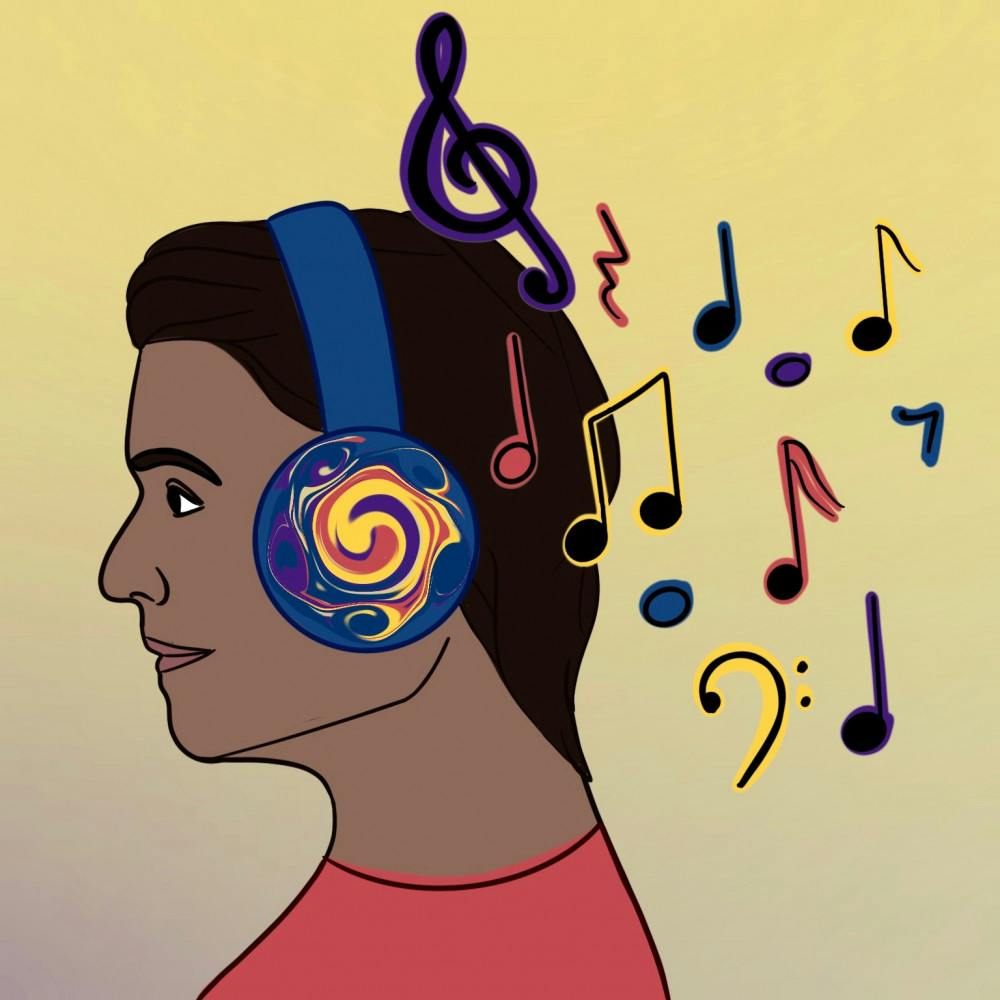For many, music pre-pandemic functioned partly as background noise in restaurants and grocery stores or the soundtrack to the daily commute.
Now, with in-person classes canceled, businesses limited and the public left mostly house-bound, the role of music in many’s day-to-day routines has shifted. Listening to music has become less of a passive experience and more of an intentional activity.
Megan Haley, a 20-year-old UF music sophomore, said with less to do and fewer reasons to leave the house, her music consumption dropped.
“Now that I don’t drive as much, I don’t listen to music as much,” she said.
Data from Spotify reflects this phenomenon, with a dip in earnings reported at the end of April. The company cited the change in morning habits (namely, the lack of them) as a primary factor for the decrease in activity.
Music no longer helped people get ready for the day because people weren’t getting ready for the day at all.
But, overall, use of the platform has risen. Spotify charted a 32% increase in users from the fourth quarter of 2019 to the first quarter of 2020.
This uptick in usage could be attributed to increased interest in playlisting, something Rachel Alexander, a 19-year-old UF music and natural resource conservation sophomore, developed a penchant for over the COVID-induced quiet time.
“When quarantine started, I was super into making playlists for different moods,” she said. “My favorite was ‘social dizzztancing’ because I was always exhausted back in March and April.”
Though music’s place in the day-to-day has deteriorated, some have turned to leisurely listening to fill the extra time on their hands.
“During quarantine, I definitely spent more hours listening to music than usual,” said Saachi Konjalwar, an 18-year-old UF general business studies freshman.
The decrease in social plans provided a prime opportunity to listen to more music, and the specifics of what kind of music people were listening to varied significantly. Listeners seemed to gravitate toward one of two options: expand their tastes with new artists and genres or frequent old favorites.
For Alexander, it was the former.
“I’ve gotten into some new genres like rap and experimental and have focused on listening to a lot more BIPOC artists and branching out in my tastes,” she said.
But for others, like Haley and Konjalwar, the latter was more appealing.
Konjalwar said the familiarity of artists like Taylor Swift and the Beatles, whose music was a major presence throughout her childhood, brought a sense of comfort and stability the pandemic had stripped.
Haley, meanwhile, picked up her old pop-punk catalog, especially when studying at home. She said it functioned as something to play in the background.
But even if the music wasn’t new, both said they experienced an added novelty in their listening endeavors.
Konjalwar dove deeper into her favorite artists, digging into the entire discographies of favorites like Joni Mitchell and James Taylor.
“I was discovering old music in a different way,” she said.
Music has been proven to impact the psyche in various capacities, and many have turned to it to cope with the chaos of the pandemic. Whether it’s metal music for an energy boost in the middle of a slow workday, smooth jazz to calm down after watching the news or a trusted favorite to bring a sense of familiarity, one thing is clear: Music affects mentality.
“It’s my personal therapy,” Konjulwar said.
COVID-19 has been the source of a whirlwind of change, with new protocols and precautions constantly incorporated into daily routines. But through the turbulence, music remains.
“Music – whether playing or listening to it – always helps me ground myself and know that things are temporary,” Alexander said.
Whether picking up old favorites, making new discoveries or halting listening altogether, many music lovers have altered their listening habits during the COVID-19 pandemic and the lifestyle changes that came with it.

Heather Bushman is a fourth-year journalism and political science student and the enterprise elections reporter. She previously wrote and edited for the Avenue desk and reported for WUFT News. You can usually find her writing, listening to music or writing about listening to music. Ask her about synesthesia or her album tier list sometime.






